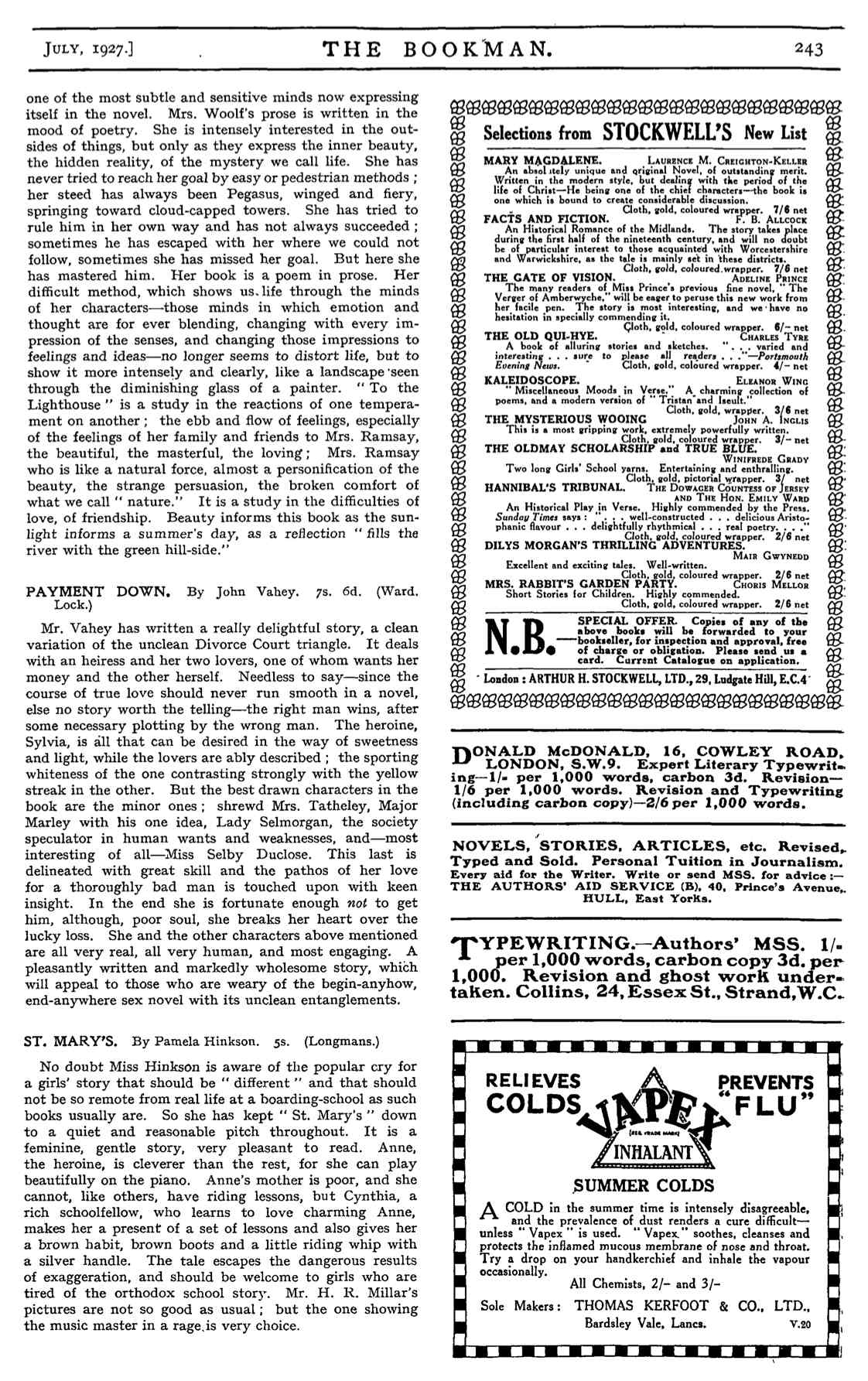
[next page, first column]
one of the most subtle and sensitive minds now expressing
itself in the novel. Mrs. Woolf’s prose is written in the
mood of poetry. She is intensely interested in the outsides
of things, but only as they express the inner beauty,
the hidden reality, of the mystery we call life. She has
never tried to reach her goal by easy or pedestrian methods;
her steed has always been Pegasus, winged and fiery,
springing toward cloud-capped towers. She has tried to
rule him in her own way and has not always succeeded;
sometimes he has escaped with her where we could not
follow, sometimes she has missed her goal. But here she
has mastered him. Her book is a poem in prose. Her
difficult method, which shows us life through the minds
of her characters—those minds in which emotion and
thought are for ever blending, changing with every impression
of the senses, and changing those impressions to
feelings and ideas—no longer seems to distort life, but to
show it more intensely and clearly, like a landscape seen
through the diminishing glass of a painter. “To the
Lighthouse” is a study in the reactions of one temperament
on another; the ebb and flow of feelings, especially
of the feelings of her family and friends to Mrs. Ramsay,
the beautiful, the masterful, the loving; Mrs. Ramsay
who is like a natural force, almost a personification of the
beauty, the strange persuasion, the broken comfort of
what we call “nature.” It is a study in the difficulties of
love, of friendship. Beauty informs this book as the sunlight
informs a summer’s day, as a reflection “fills the
river with the green hill-side.”






